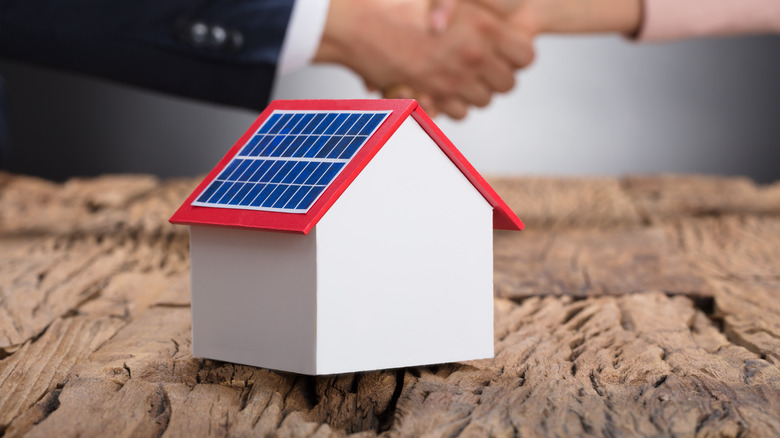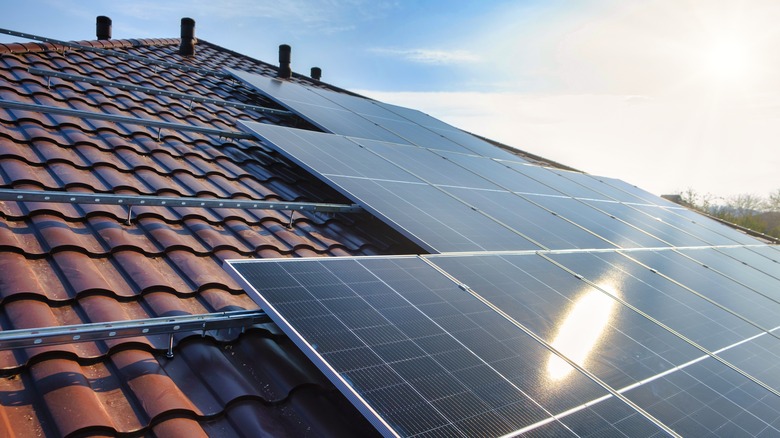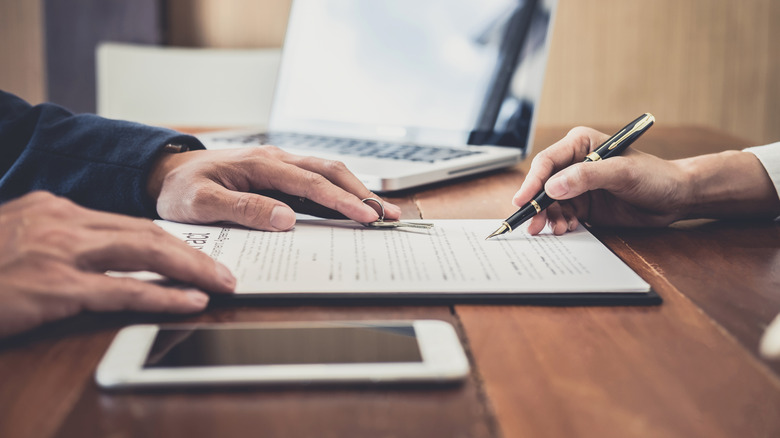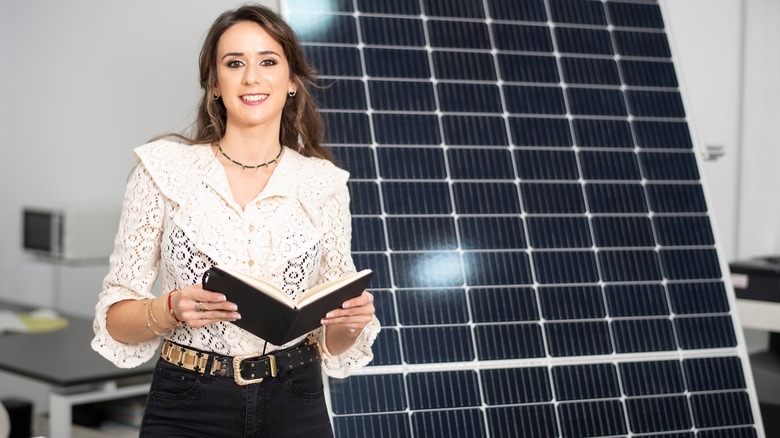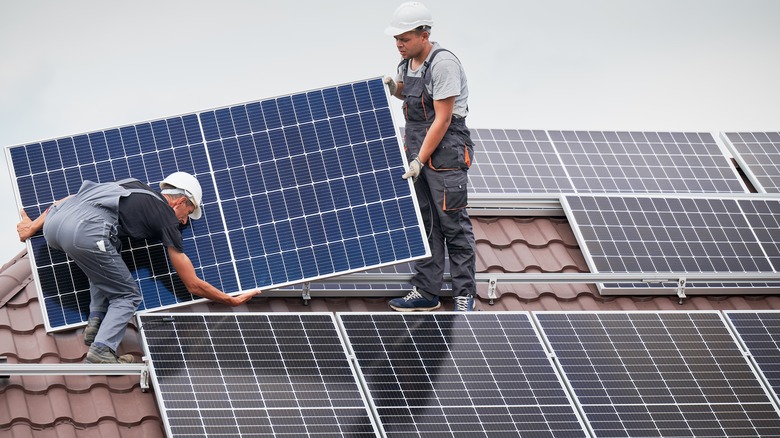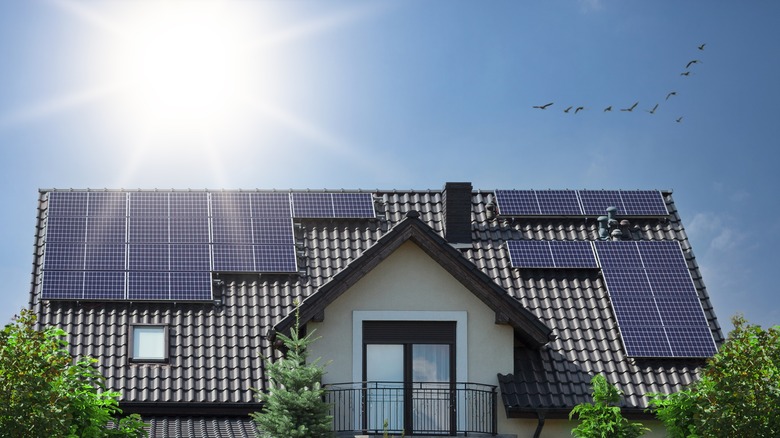What Does Solar Leasing Mean?
Today, going the solar route is so popular among homeowners for all the right reasons. EnergySage mentions that installing solar panels in your home could save you between $10,000 and $30,000 over its entire lifetime. Initially, installing solar panels was quite expensive and often beyond the reach of most homeowners. Because of this high initial installation cost, solar leasing made its way to help homeowners finance solar home facilities. The solar leasing program has been assisting homeowners in getting the benefits of solar panels without paying the hefty initial installation cost.
The Solar Energy Industries Association mentions that solar installation costs have since dropped by 60%, making it more accessible. This begs the question, is solar leasing still worth it today? Homeowners are faced with deciding whether to go for a solar leasing program or buy solar panels outright. In this post, we will highlight everything you need to know about solar leasing to help you determine whether it is the right choice for you.
What is a solar lease and how does it work?
Similar to other leasing programs, solar leasing is a financing agreement that homeowners get with solar companies. Usually, solar companies will finance the initial installation cost, and the homeowner pays for it in terms of a fixed monthly premium over an agreed period. However, it is essential to mention that you do not own the solar panels; what you are paying for is a cheaper alternative to your regular power company. Because you are moving from the usual electricity from the grid to solar power, you should expect a significant drop in your monthly electric bills.
In fact, according to Inspire Clean Energy, a regular household in the US can save up to $1,390.22 per year, which translates to just over $115 per month. Also, if solar energy is high enough, you can completely rely on it and not have to spend a dime on the electricity bills from the grid. However, you need to keep in mind that despite not having to pay the monthly electricity bills, you will still have to pay for the solar lease payment, which is often lower than what you would otherwise spend on regular electricity from the grid.
Terms and conditions of the lease
While every solar lease comes with different agreement terms, there are still some fundamental elements that are common across every contract. First, the terms of the solar lease agreement are usually made to run through the lifetime of the solar panels. According to Sunrun, the average lifespan of solar panels is approximately 25 years, and therefore, it is common for most lease agreements to last between 20 to 25 years. Once the panels are installed, the solar company usually gives you a mobile application where you can monitor the performance and also the efficiency of the energy generated.
One advantage of solar leasing is that you don't have to worry about repairs whenever there is a breakdown. Since the panels belong to the solar company, they are responsible for keeping it running for as long as the lease is still active. Another important thing about solar leasing is the price escalator. Essentially, the price escalator is the agreed rate by which the lease payment increases yearly to reflect the increase in the cost of electricity. This means that your lease payment is bound to increase yearly by about 1 to 5%, via SaveOnEnergy.
Pros of solar leasing
The most obvious benefit of going the solar leasing route is avoiding high energy bills; however, the initial installation cost is often relatively high. According to ConsumerAffairs, the cost of installing solar panels in a regular household is between $12,000 and $40,000, depending on that particular household's size and energy needs. No doubt this cost is high, but you get to save a lot of money down the line. Solar leasing allows you to cut down on your regular electric bills without worrying about the initial installation cost. All you have to do is pay a reasonable monthly premium that is quite lower than your regular monthly energy bills.
Another advantage of solar leasing is getting a warranty for repairs and maintenance that the unit might require down the line. Just like any other system, solar facilities are not perfect. Fixr also mentions that homeowners spend between $120 to $3,000 for solar repairs depending on the level of damage and number of panels. Getting a good solar leasing program should cover the cost of such unexpected expenses. A less serious issue like cleanup is a no-brainer; a simple wipe-down should do the trick for you.
Cons of solar leasing
As much as solar leasing sounds appealing on paper, it has its fair share of disadvantages that you should be aware of. First off, the major drawback of going the solar leasing route is that you miss a lot of tax credits and incentives that homeowners who choose a renewable energy source are entitled to. According to the Office of Energy Efficiency and Renewable Energy, solar installations done before 2019 are eligible for a 30% federal tax credit, 26% tax credit for installation done between 2020 to 2022, and a 22% tax credit for installations done in 2023.
Another disadvantage often understated when choosing a solar lease is that it is expensive in the long run. Buying and getting ownership right from the beginning might be costly but will save you a lot of money in the fullness of time. Think about it: The lease agreement runs throughout the lifetime of the solar panels, which is between 20 to 25 years. If it takes you 15 years to pay off the solar ownership, you have the rest of your life to enjoy free electricity.
Is a solar lease ideal for you?
From the outside looking in, a solar lease can seem like getting free solar panels; however, you should realize that even roses have thorns. There are a few isolated cases where getting a solar lease would be a good idea. The only reasonable instance in which you should consider a solar lease is only when you don't qualify for any federal credits or have no access to a loan to finance ownership of one. Other than that, it would be difficult to make a reasonable financial case why you need to lease solar for your home.
According to SolarReviews, the best way of getting a solar system installed in your home is through cash. It not only offers the best reward for investment but also guarantees you ownership of the entire solar facility. However, if you don't have access to large sums at the moment, the second best option is going for a solar loan. You still get the benefits of not paying the upfront charges but at the same time get to enjoy a better return on investment as compared to choosing the solar lease option. But if you decide to get a solar lease, one rule of thumb to remember is to do your due diligence to get the best terms for your agreement.
